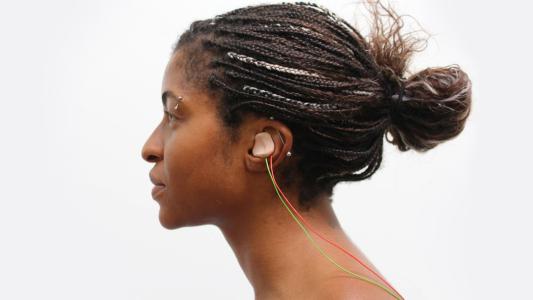Neuroscience
New ALS treatment appears to slow disease progression
A new ALS treatment that appears to slow disease progression offers hope to those battling the incurable neurological disorder.
Elon Musk: Neuralink brain implant detects pigs' movements
During a livestream, CEO Elon Musk presented the latest Neuralink brain implant, as well as what he claimed were several pig recipients of the device.
Left-handed people are “left-out” of brain research
Left-handed people are systematically excluded from brain research, due to an archaic doctrine. These neuroscientists want that to change.
Nerve-stimulating earbud could accelerate language learning
A non-invasive vagus nerve stimulation device can make language learning easier — and it might help with other types of learning, too.
Ketamine discovery may lead to new antidepressants
Researchers have uncovered new insights into how ketamine affects the brain, potentially illuminating the path to new antidepressants.
“Off-switch” in mouse brains offers new hope for pain relief
A newly discovered part of the mouse brain appears to naturally stop pain processing, and it could lead to more robust pain relief options in the future.
Treating depression at home with a tDCS headset
At-home tDCS headsets are helping people treat their depression without having to go to a doctor’s office.
Could VR change how you trip on ketamine?
Virtual reality meets ketamine therapy to help treat pain, anxiety, and depression, to name a few.
The case for love-enhancing drugs
Drugs don’t just affect the user; they shape relationships too. And a pair of bioethicists thinks we should consider them for relationship enhancement.
Developing a better mind-controlled prosthetic hand
This new technique allows a person to control their prosthetic hand precisely and in real-time by amplifying the nerve signals from their residual limb.









